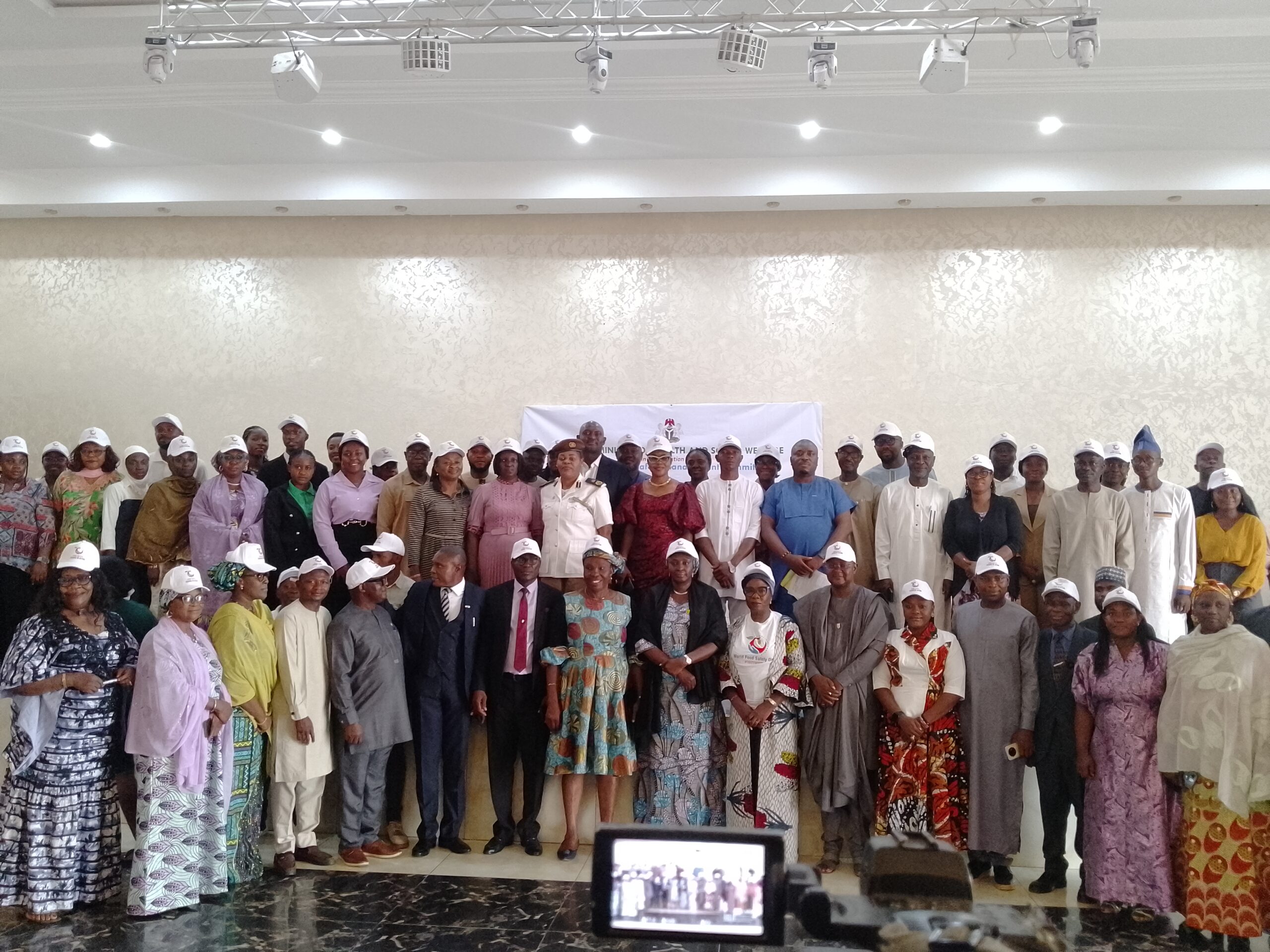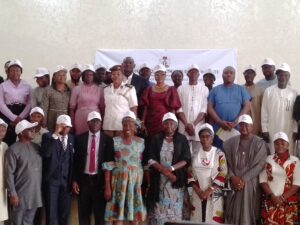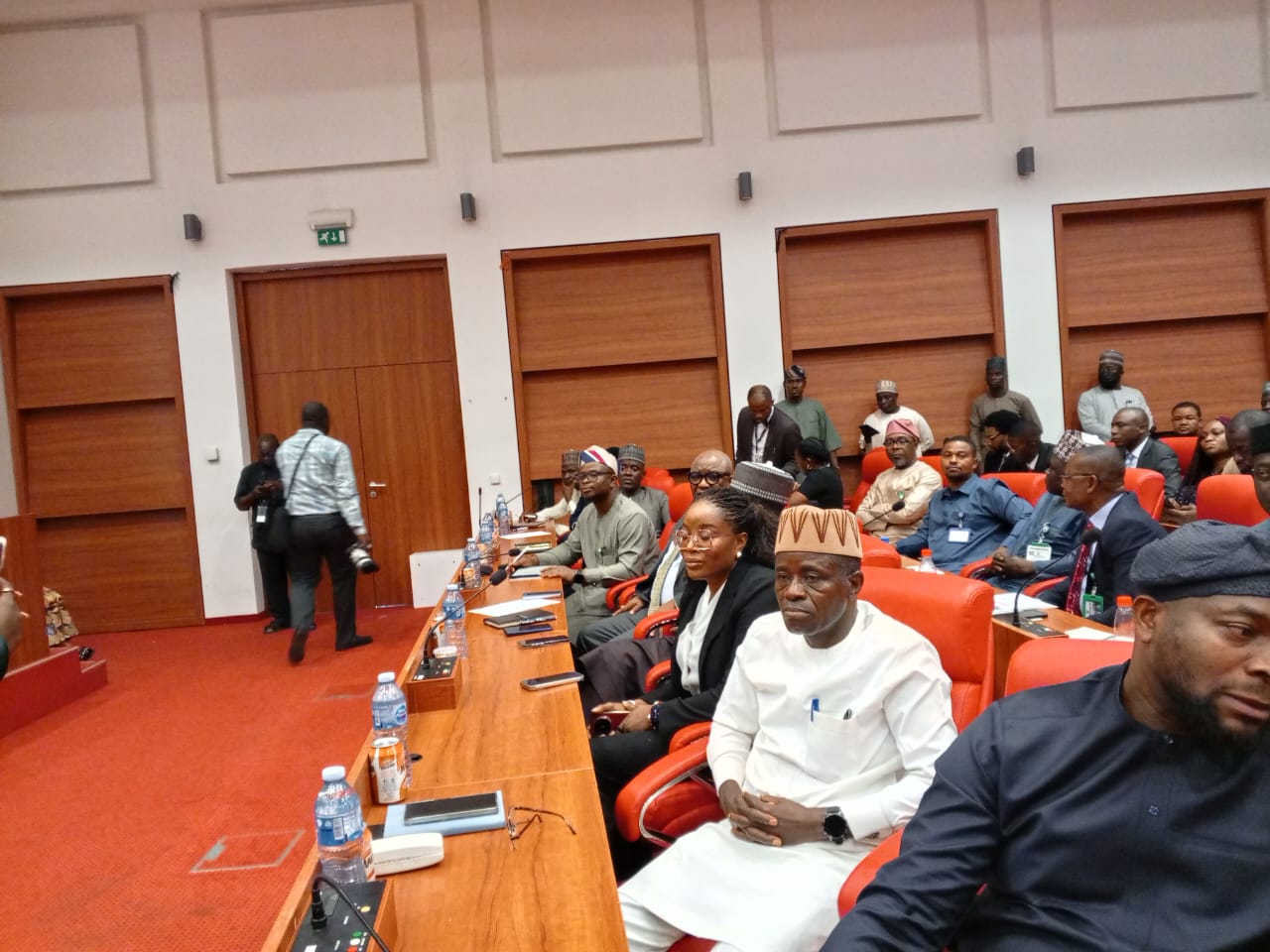
By Fatima Saka
The Federal Government, through the Federal Ministry of Health and Social Welfare has reaffirmed its commitment to strengthening Nigeria’s food safety systems, placing science, innovation, and evidence-based policy at the heart of its agenda.
Marking the 2025 World Food Safety Day in Abuja on Monday, officials pledged bold, coordinated actions to ensure every Nigerian has access to safe, nutritious, and trustworthy food. With the theme “Food Safety: Science in Action,” the event brought together stakeholders from across government, international agencies, academia, and the food industry.

Speaking on behalf of the Coordinating Minister of Health and Social Welfare, Professor Muhammad Ali Pate, Permanent Secretary Daju Kachollom, mni, emphasized that food safety must become a strategic national priority, backed by research and resilient systems.
Speaking under this year’s theme, Kachollom declared a new era of evidence-based food safety policy in Nigeria. She expressed “determined optimism” and underscored that science must no longer remain at the fringes of policy development but be the foundation upon which all regulatory and safety interventions are built.
“By harnessing cutting-edge research, risk assessment methodologies, and foodborne disease surveillance, we are building a resilient system that anticipates threats before they arise,” Kachollom stated. “This is not mere rhetoric. It is our blueprint for ensuring every meal in Nigeria is safe, healthy, and trustworthy.”
Kachollom highlighted several milestone policies spearheaded by the Ministry, including the revised National Policy on Food Safety and Quality, the National Guideline for Sodium Reduction, and the National Guideline for Food Handlers’ Medical Test. She noted that these policies have already begun to reshape food industry practices and public health outcomes.
“These guidelines have set new benchmarks for consumer protection and hygiene standards,” she said. “They are not ends in themselves but stepping stones toward a safer and more responsive food system.”
She announced plans to scale up digital traceability systems and strengthen laboratory testing protocols, tools she said will give regulators and industry actors real-time insights into safety lapses and enable faster, targeted interventions.
The Permanent Secretary gave special attention to the Ministry’s newly activated Technical Working Groups (TWGs), which she described as “the engine rooms of Nigeria’s food safety future.” These TWGs are working across critical focus areas including risk-based regulation, traceability, food inspection, and science-based education to provide technical recommendations grounded in validated research.
“Every decision moving forward will be driven by data, peer-reviewed science, and verified field studies. This is how we’ll preempt food safety risks and not merely react to crises,” she said.
Looking ahead, Kachollom revealed the Ministry’s plans to invest in specialised training programmes for regulators and food safety professionals across Nigeria.
“We are building a new generation of experts scientifically equipped, technically sound, and deeply committed to safeguarding public health,” she declared.
The Permanent Secretary made it clear that the country’s food safety framework must evolve continuously to meet both emerging risks and the technological advancements reshaping global food systems.
In a stirring call to action, Kachollom charged all pillars of Nigeria’s food ecosystem to embrace their roles in the transformation:
Researchers must drive innovation in surveillance tools and risk modeling;
Academic institutions must nurture food safety experts through multidisciplinary training;
The food industry must invest in technologies that combine safety with nutrition;
Regulators must stay ahead by adapting policies in line with new scientific evidence.
“United in purpose and driven by science, we can forge a food safety landscape that is future-ready, resilient, and inclusive,” she said.
Kachollom praised the ongoing contributions of farmers, researchers, regulators, and development partners, stating that their collaboration forms the backbone of Nigeria’s food safety reform.
“Every actor, from the scientist in the lab to the food handler in a local kitchen, plays a critical role in shaping a safer tomorrow. We must all be ambassadors of this shared vision,” she said.
“Let us embrace scientific innovation. Let us pursue collaborative excellence. Let us build on our collective achievements. The Nigeria we are building begins with the food we make safe today.
“The helm of the 2025 World Food Safety Day commemoration, the Federal Ministry of Health and Social Welfare has sent a clear message: Food safety is not an afterthought, but a public health priority powered by science. The Ministry’s actions mark a strategic shift from reactive regulation to anticipatory governance anchored in research, driven by innovation, and aimed at securing the health of all Nigerians,” she highlighted.
To further institutionalize science-based approaches, according to her, the Ministry has activated Technical Working Groups (TWGs) covering areas such as food inspection, traceability technology, and risk-based regulation. “These TWGs, composed of experts from academia, regulatory agencies, and the private sector, are expected to drive innovation and ensure rigorous validation of food safety initiatives before implementation.”
In his speech, Dr. John Atanda, Director and National Coordinator, Food Safety and Quality Programme, provided a sobering insight into the global burden of foodborne diseases.
“Globally, 600 million people fall ill from unsafe food each year, and low- and middle-income countries bear the brunt of this burden with over $110 billion lost annually due to productivity loss and healthcare costs,” he said.
Atanda emphasized that food safety is more than a technical issue, it is a life-saving imperative. He called for stronger integration of science into food policy formulation, urging all stakeholders to support nationwide risk assessment and surveillance initiatives.
In her opening remarks, Mrs. Olubunmi Aribeana, Director of the Food and Drug Services Department, stressed the collective responsibility required to maintain food safety across the entire supply chain.
“Food safety is everyone’s business from the farmer and processor to the retailer, transporter, and consumer. Each of us has a role to play by adhering to standards rooted in scientific evidence,” she said.
She further noted that strengthening food safety in Nigeria will not only improve public health but also enhance consumer confidence in local food products and promote the country’s competitiveness in global trade.
Also, gratitude was also extended to development partners, international organizations, and local stakeholders whose continued support has been instrumental in advancing Nigeria’s food safety agenda.
Delivering remarks on behalf of the World Health Organization (WHO), Alexander Chukwuagwu described unsafe food as one of the world’s most urgent public health challenges.
“One in every ten people globally falls ill annually due to contaminated food,” he said. “The WHO views food safety not just as a public health issue, but as a development issue. Science is the bridge between knowledge and impact.”
Chukwuagwu called on governments and institutions to expand investment in research, data systems, and science-led regulation. “Turning cutting-edge research into tangible progress is critical to our journey toward safer, healthier food for all,” he stated.
Also speaking, Mrs. Nancy Walter, an Environmental Health Officer from the Federal Ministry of Environment, urged a multisectoral approach to food safety. She called for “widespread advocacy for evidence-based food hygiene practices to protect public health and the environment.”
READ ALSO: World Environment Day: ACI, partners stage Walk for Sustainability, Recycling
Climate Action: EcoSmart Club Trains 45 Youths with Disabilities in Oyo on Disaster Preparedness
Walter emphasized that food safety from farm to table must be rooted in scientific monitoring and contamination prevention. She said the Ministry is actively enforcing environmental surveillance, daily sanitary inspections, and capacity building among food handlers.
This year’s World Food Safety Day served not only as a moment of reflection but also as a bold reaffirmation of Nigeria’s resolve to integrate science into the heart of food policy. As the nation looks to the future, the Federal Ministry of Health and Social Welfare has made it clear: food safety is a national priority and science is the engine that will drive it forward.





